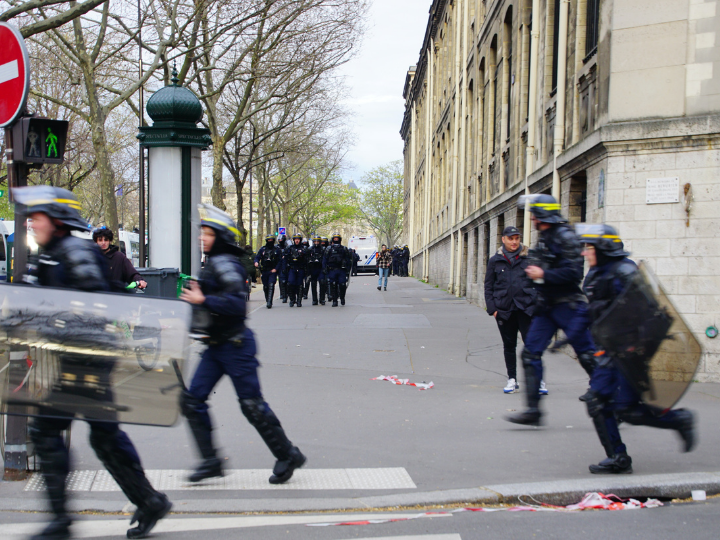by
N. Peter Kramer
She becomes the second DPP President and the first female President in ROC’s (Taiwan). Four years ago, Ms Tsai lost the presidential elections to Ma Ying-jeou, then the incumbent President (Ma wasn’t re-electable this year; two terms are the constitutional maximum).
Tsai’s DPP also won an absolute majority in the simultaneous elections for the national parliament, the Legislative Yuan, 68 seats of the 113; the first time in Taiwan’s parliamentarian history that the DPP will have a majority. This DPP majority will make President Tai’s function easier. The constitutional rule is that the President’s party delivers the government (Executive Yuan), rather than the biggest party in the parliament. This rule was a handicap for DPP President Chen Shui-bian, 2000 – 2008, when the KMT kept the majority.
The picture is that the younger part of the electorate chose DPP. Reasons include the impact of the slower economic growth on employment (especially for younger people) and the fear of too close (economic) ties with Mainland China (Peoples Republic of China). The first ever meeting of the Presidents of both countries, in Singapore on November 7,2015, may have made a contribution to this fear; as did an incident a day before the elections, when a 16 year old Taiwanese singer waved the flag of her country on Korean television and she was heavily bullied by the Chinese authorities. ( Some researchers said that 12% of the voters were influenced by this incident). Also China’s reaction to recent protests in Hong Kong must have played a role in the mind of the DPP voters.
Taiwan’s economy
In 2010 both sides signed the Cross- Strait Economic Cooperation Framework Agreement (ECFA) based on the ‘1992 Consensus’; a historical moment of official détente. In the meantime 20 practical agreements are signed. The negotiations on expanding the number of the trade and services agreements were still going on. Will they continue? The President- elect used vague phrases; understandable as many of her voters believe that ECFA has a negative effect on the Taiwanese economy and delivers only profit for big companies and corporations.
For the Taiwanese economy, ties with China are crucial. Trade between the countries rose more than 50% over the last eight years. Mainland China is now Taiwan’s no. 1 trade partner. In the first 11 months of 2015 the trade volume (import+export) with the Mainland amounted to US$ 106.1 billion (22,5%); compared with US$ 55,6 billion (12%) with the US and US$ 53,3 billion (11,5%) with Japan. Trade with some EU countries was in total US$ 42,6 billion (9%). But also in 2014 Taiwan welcomed nearly 10 million foreign visitors; 40% from them came from Mainland.
President-elect Tsai has set expectations high: she wants to turn around Taiwan’s ailing economy and improve welfare in a society with an ageing population and stagnant university graduate salaries. She promised a ‘new era’ for Taiwan, reforming the overburdened pension system, upgrading struggling industries and delivering low-cost housing. This would mean a radical overhaul of the economy. During her election campaign Ms Tsai has hinted at stronger trade relations with the US and Europe as well as Southeast Asian countries; and also at participation more in international agreements.
China’s ‘de facto veto’ and an unwilling EU
The ability to pursue the goal of international participation will be limited by ‘big power’ China that often has a de facto veto on Taiwan’s participation in international organisations (Taiwan has, as non-UN member), no chance to enter UN related organisations as WHO, ICAO etc) and agreements (as Trans-Pacific Partnership, the Regional Comprehensive Economic Partnership and ASEAN).
Taiwan has also been looking for many years for a trade agreement with the EU; however it looks as though the EU is stringing Taiwan along. Free trade agreements of the EU with Singapore, South Korea and Canada were worked out in the meantime, which means, for instance, that Korea-EU trade can take place under considerably better conditions than Taiwan’s trade with EU countries. This EU restraint will certainly increase if the Cross Strait relations deteriorate.
The ‘1992 Consensus’, key to Cross-Strait negotiations
The origin of the ‘1992 Consensus’ proposed by Taiwan and formally adopted by the Mainland is summarised in the wording “one China with respective interpretations”. From 2000-2008 DPP President Chen Shui-bian did not acknowledge the ‘1992 Consensus’. As KMT President Ma Ying-jeou was elected in 2008, the Mainland leader Hu Jintao stated to US President George W. Bush that ‘the Chinese Mainland and Taiwan should restore consultation and talks on basis of the 1992 Consensus’. This happened and trade negotiations between 2008 and 2016 were successful.
The questions now are: are both sides willing to continue these negotiations? Will the newly elected DPP President Tsai Ing-wen recognise the ‘1992 Consensus’: one China with respective interpretations? It will be tight rope walking for her. The Taiwan Affairs Office in Beijing repeated saying recently that Taiwan belongs to China and that it will oppose ‘secessionist activities’. On the other hand among Ms Tsai’s voters but also inside her parliamentary majority are many that expect her to raise the point of ‘independence’ for Taiwan. They don’t forget that this is the idea in which Ms Tsai started her political career!






